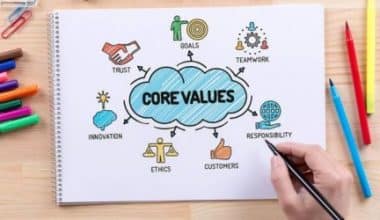In recent years, Management Consulting skills have become a big deal due to the intuitive nature of Management Consulting.
Added to the fact that Consultants determine the general performance and growth of any business.
Furthermore, Business Consultants are solely responsible for the management, operations, strategy, and structure of a business. They identify problems, diagnose those problems, create options, suggest recommendations and finally implement them. This is regardless of the type of Consultancy.
Hence, just acquiring a degree in a university doesn’t cut it.
Therefore, specific Management skills remain on the checklist of Employers to determine if a Consultant is capable of delivering in the long run.
Effective Delivery is dependent on a Consultant’s ability to discover, develop and hone these management consulting skills listed below:
#1. Flexibility
Due to the demanding nature of Management Consulting, this skill is a no-brainer. Carrying out tasks that require traveling from Client to Client and being available even at odd hours of the day; isn’t something a rigid Consultant can handle.
Being flexible makes it easier to deal with the demands that come with the job without experiencing a nervous breakdown.
However, on the brighter side, Business Consultants are usually entitled to juicy benefits at the end of the day, both financially and medically.
#2. Effective Communication
In the world of Management Consulting, Effective communication is vital in scenarios like Delivering presentations, conducting analytical interviews with employees, managing stakeholders, and writing business proposals.
Lags, ineffectiveness, and incompetency, are most times factors of ineffective communication. Developing this management consulting skill will put a consultant at the top of his game in no distant time.
#3. Ability to Learn Fast
The first day on the job is usually exciting and unpleasant. Exciting, because the cross-over from the unemployment market was successful. Unpleasant, because trying to assimilate and handle the excessive information coming at you could be daunting.
That’s beside the fact that you would have to prove a whole lot to your Employer, undergo pieces of training, attend lengthy meetings, conduct analysis, and effectively communicate with Employees.
Although a fast learner hardly has a problem trying to adapt to these processes. So, this makes it an integral part of the top management consulting skills in high demand.
#4. Being A Team Player
Exhibiting leadership qualities is a vital attribute to becoming a good Consultant. Because Consultants work on projects with teams comprising of tens and sometimes hundreds of people.
So, the ability to work well in a team endears you to your colleagues, it gives you good rapport with them and, in turn, gets the job done faster and more efficiently.
#5. Being a Problem Solver
Given the circumstance that the job description comes with carrying out an infinite amount of data collection, analysis, and research, a solution-oriented, analytical and detailed mind is required.
To survive in this line of work, you must exhibit a high level of organization, reliability, and definite structure in your work configurations.
Keeping that in mind, this management consulting skill should be given much attention.
Read Also: 5 Types Of Business Consultants In High Demand.
#6. Prompt Decision Making
Asserting yourself to a new job could be terrifying. Amidst the terror, your ability to promptly make decisions sends a good signal.
Furthermore, a vital factor in management consulting is exhibiting independence in terms of ideas with a strong desire to follow through.
Also, confidence plays a significant role in decision making, coupled with experience, so strife at becoming a good listener. Besides, results are usually off the roof when you support your peers in realizing their ideas, believing in them, and learning from them.
#7. Creative Thinking
More often than not, Consultants are faced with unique problems they’ve never encountered with no experience to trigger decision making. Creative thinking swoops in to save the day.
So this is an essential weapon in your arsenal, which could help to come up with a working solution.
Although it’s okay to ask for help and advice from colleagues. Chances are, they would be able to come up with a new way of tackling the unique problem. This gesture fosters team playing.
#8. Stress-Proof
Stress is one significant resultant effect of having to deal with the pressure and responsibilities of management consulting. Anticipated stress includes meeting tight deadlines and stringent targets and occasionally dealing with challenging customers and projects.
Therefore, keeping a cool head and communicating effectively amidst stress and excessive pressure creates emotional strength to deal with diverse situations.
#9. Customer Focused
Being a Customer Focused demands a high level of communication and flexibility when asking questions to ascertain your client’s needs. It also involves spending time in the working environment and with team members.
Furthermore, it involves maintaining a good rapport with the Client by keeping them abreast of the progress, decisions, and recommendations.
But you might want to avoid feeding them with excessive details even though some clients could be too demanding.
#10. Solution-Oriented
A solution-oriented/result-oriented Consultant is one who goes out of his way to ensure the job gets done through critical thinking. But, Critical thinking is the ability to think clearly and rationally, understanding the logical connection between ideas.
It goes without saying that what Clients expect at the end of the day are positive results. So thinking this way helps to develop enhanced insights and, in turn, better solutions for your clients.
In most cases, you might have to challenge your Manager’s requests. It’s totally okay because the application of critical thinking before jumping into tasks puts things into perspective.
#11. Collaboration With All Job Levels
A corporation’s board of directors, senior management, or a specific department within a company may appoint you as a consultant. When engaging with stakeholders and personnel who will carry out a strategy, having a sense of confidence will be beneficial. In any situation, developing poise, politeness, kindness, outstanding listening abilities, and public speaking skills will benefit you.
#12. Time Management and Organization
When a company engages a consultant to assist with a reorganization or a problem, their time is equally as precious as yours. Meetings are almost certainly an unavoidable part of the process, but you may show respect for their time by keeping them brief and efficient. You might set an agenda with individuals ahead of time and be polite but strong in your attempts to keep a meeting on track.
You might want to limit meetings to only important personnel, particularly for preliminary work like defining the scope of your consulting project. Prepare for meetings well ahead of time, and keep any electronic presentations and documentation close to hand so you can confidently provide comments and prevent delays.
#13. Curiosity
Because consultants work with a variety of customers, a keen interest in learning more about them is one of the most important management consulting skills. It will help you get the information you need to accomplish your job properly. Curiosity is defined as the ability to ask intelligent, focused questions and then listen intently to the replies. It also enables you to comprehend how each firm fits into the context of its sector, as well as the ways in which a company may be developing its product or ideology.
If the organization you’ve been recruited to assist lacks curiosity among management and staff, you might be able to persuade them to look into their industry with an open mind and help them formulate the correct questions to ask of themselves and about competitors’ practices.
#14. Credibility
Your credibility as a consultant is likely to be based on your prior expertise and reputation as someone who has aided businesses and individuals in legitimate and demonstrable ways. Additional education, any applicable certificates, a personal website, or a biography on a professional site that explains your talents and experience can all help to boost your reputation.
You might start your own advice podcast or offer to be a guest on an existing podcast, or you could produce an academic article or book to explain your business ideas and philosophies. Client testimonials will demonstrate how well you operate with real individuals.
What Skills Are Important for a Consultant?
The following are important skills as a consultant;
- Communication Skills.
- Observation Skills.
- Problem-Solving Skills.
- People Skills.
- Organization & Time Management Skills.
- Objectivity & Independence Skills.
What Are Three Key Skills of a Good Consultant?
Regardless of the type of consulting field a person wishes to pursue or the organization for which they wish to work, there are several important attributes that every successful consultant should possess. For example: Being self-assured, being a good listener, and being a team player will help you nurture and gain client trust.
What Skills Do McKinsey Consultants Have?
McKinsey looks for the same traits in all of its applicants, regardless of where they come from. Brian emphasizes that it’s all about three qualities. They search for problem-solving skills, as well as the capacity to work well in groups and form strong bonds.
What Makes You a Good Management Consultant?
Highly motivated to succeed in all endeavors, including those that are particularly challenging, by prioritizing and consistently executing on the highest quality standards. Superior abilities in the following subject areas: problem analysis, data collection, and presentation. Superb interpersonal abilities; capable of leading a team, coordinating with a support staff, and swaying customers.
What Do Management Consultants Do?
Management consultants help their clients (companies, executives, leaders, and teams) in the United States and around the world define and improve their processes, as well as identify and solve complex business, organizational, and operational problems.
How Many Hours Do McKinsey Consultants Work?
Those kinds of projects are exciting to work on because you can dive headfirst into your work in just two weeks, but that’s not a pace you want to keep up for very long. The typical work week lasted between sixty and seventy hours.
Is Working at McKinsey Stressful?
McKinsey consultants have a reputation for putting in long hours and putting in a lot of effort. Therefore, you should expect to be tested to the limits on a regular basis, whether it be emotionally, mentally, or physically.
Related Articles
- Strategy Consulting: Top Consulting Firms in 2021
- How to Start Consulting Business In 2022 (Full Guide)
- Technology Consultant: Overview of Top 10 Technology Consulting Companies
- TAX CONSULTANT: Best 2021 Options for Tax Solutions (+Detailed Guide)
- SMALL BUSINESS MANAGEMENT: Best Software for Small Business Management(+ Quick Guide & Tips)






